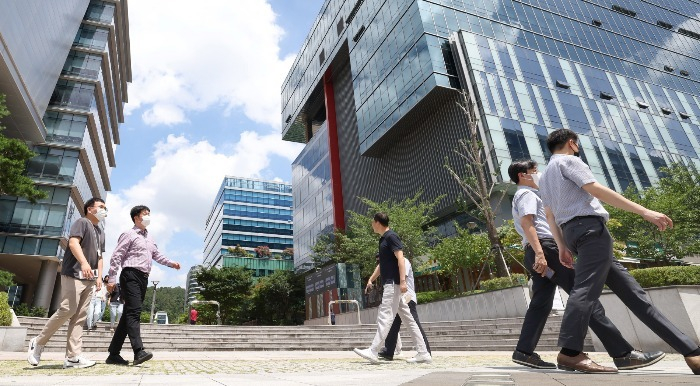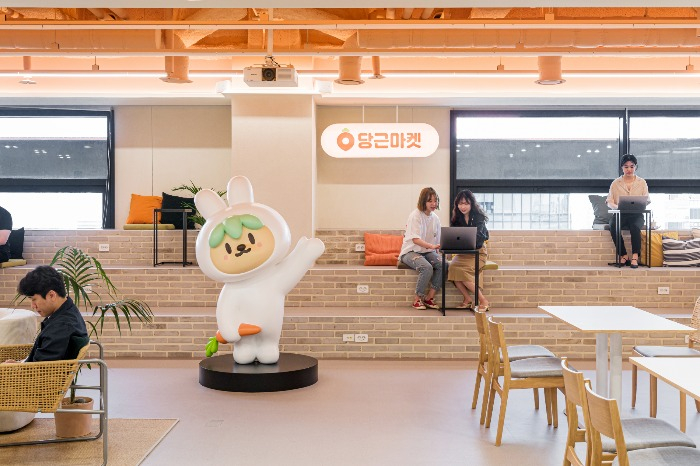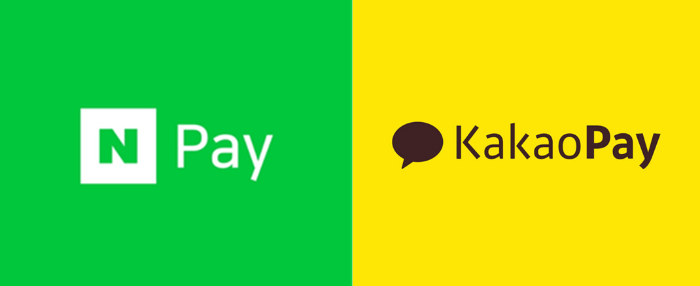Corporate Korea pumps the brakes on developer pay hikes┬Ā
Tech companies reduce incentives, freeze pay and even initiate massive layoffs
By Aug 01, 2022 (Gmt+09:00)
Alibaba eyes 1st investment in Korean e-commerce platform


Blackstone signs over $1 bn deal with MBK for 1st exit in Korea


OCI to invest up to $1.5 bn in MalaysiaŌĆÖs polysilicon plant


Korea's Lotte Insurance put on market for around $1.5 bn


NPS loses $1.2 bn in local stocks in Q1 on weak battery shares



South KoreaŌĆÖs biggest technology companies are taking a breather from their spending spree on hiring and retaining top developers, which has been the trend in the last two years.┬Ā
The shift is due to the shrinking liquidity hit by interest rate hikes and fears of recession worldwide.┬Ā
Wanted Lab Inc., operator of its namesake hiring information platform, released an analysis of the salary increases of developers who switched their jobs in the first half of this year, as reported to the national pension plan.┬Ā
According to the Sunday report, the developers on average enjoyed a 5.9% salary increase year on year in 2022, significantly lower than the 12.3% jump from the first half of 2020 to the same period last year.┬Ā┬Ā
The salary for managerial level developers, or those with 12-13 years of experience, rose 15.5% in the first half of last year from the same period the previous year.
But so far this year, the pay increase rate was only slightly above 1%, much lower than the rate of inflation or compared to the year before.┬Ā
The stay-at-home orders at the height of the Covid-19 pandemic pushed the demand for developers ŌĆō and incidentally, their pay ŌĆō to unprecedented levels.┬Ā
The salary increase for developers working for South Korea's tech giants and startups over the course of the last five years was 59.2%, due to increasing digital transformation in the corporate sector and more of our lives moving into cyberspace, including leisure.┬Ā
ŌĆ£LetŌĆÖs say a company was going to hire 100 developers, both new and experienced, but it is now only hiring 80 experienced developers,ŌĆØ an industry insider told The Korea Economic Daily.
The cooling job market for developers, however, may not be for long.┬Ā
ŌĆ£As digital transformation is an inevitable trend among corporations, the demand for developers will likely increase in the mid to long term,ŌĆØ the CEO of a fashion platform operator said.
VANISHING INCENTIVES
After this yearŌĆÖs second quarter wrapped up, tech heavyweights such as Naver Corp. and Kakao Corp. have shifted their incentive plans from offering higher pay to other perks such as teleworking or working four days a week.
Nexon Co., a game publisher, raised the average employee salary by 13% last year but settled on only a 7% jump this year.┬Ā
Industry insiders view the raise to be on the conservative side, taking into consideration the 6% consumer price inflation rate.┬Ā

Danggeun Market, the startup behind neighborhood marketplace app Karrot, which boasted the industryŌĆÖs top incentives in 2021, decided against providing additional stock options this year.┬Ā
Instead, it employed non-monetary perks at work, such as flexible work hours and a paid half-day off every month.┬Ā
At the same time, employers have become more selective with their hiring ŌĆō showing a strong preference for experienced developers and strengthening background checks.┬Ā
For example, Naver will hire 30% fewer employees this year than the last yearŌĆÖs roughly 1,100, specifically looking for developers with at least five to six years of experience.┬Ā
Employers say the salary paid to developers has skyrocketed to the point of affecting the companiesŌĆÖ management.┬Ā
In 2021, the two tech behemoths Naver and Kakao spent 561.5 billion won ($429.5 million) and 517.7 billion won ($396.2 million), respectively, in total salary paid to their employees, up 45% and 77% from the year prior.┬Ā
The figures account for 43% and 87%, respectively, of the firms' operating profits.┬Ā

Some have felt the pressure more than others.┬Ā
Game developer Vespa Inc. advised more than 90% of its staff to resign, following a whopping 44.1 billion won operating loss last year.
A number of startups began to lay off developers who did not produce tangible results within the three-month probation period.┬Ā
SEIZE THE MOMENT
Others see the hiring cool-off as an opportunity to bring in top talent.┬Ā
An employee with South Korea's top online fashion platform Musinsa Co. said, ŌĆ£Now is the golden opportunity to lure in A-level developers and we are preparing for a massive hiring spree in the latter half.ŌĆØ
Retailers, who traditionally focus more on offline businesses, are also in need of more developers.┬Ā
SSG.com, the online retail and grocery shopping platform for Shinsegae Inc., doesnŌĆÖt plan on slowing down its developer recruitment this year. About half of its 1,000 employees are developers.┬Ā
ŌĆ£Trailing behind in digital transformation, which would inevitably happen with fewer developers, is akin to giving up on the business,ŌĆØ a startup employee said.┬Ā
Write to Jeong-Cheol Bae, Seung-Woo Lee at bjc@hankyung.com
Jee Abbey Lee edited this article.
-
 Korean gamesNew Delhi blocks KraftonŌĆÖs Battle Ground Mobile India
Korean gamesNew Delhi blocks KraftonŌĆÖs Battle Ground Mobile IndiaJul 31, 2022 (Gmt+09:00)
2 Min read -
 Corporate restructuringKorean firms rush to sell real estate to raise cash
Corporate restructuringKorean firms rush to sell real estate to raise cashJul 26, 2022 (Gmt+09:00)
2 Min read -
 Korean startupsFive startups join the ranks of unicorns in the first half of this year
Korean startupsFive startups join the ranks of unicorns in the first half of this yearJul 22, 2022 (Gmt+09:00)
1 Min read


